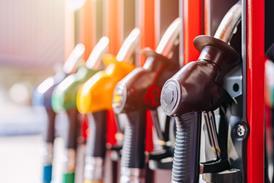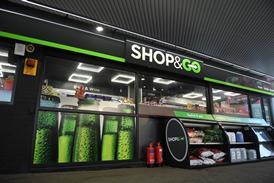only a year ago biofuels were being touted as the future, but now the government seems to be putting the brakes on its green fuels project.
Last month Transport Minister Andrew Adonis said the government needed to revise its biofuels targets for the Renewable Transport Fuels Obligation (RTFO) and take a more cautious approach. Adonis recommended more research be done before the RTFO was rolled out fully, adding that the rate of increase in the use of biofuels should be slowed to 0.5% a year, and the level for the RTFO should reach 5% by 2013-14, extended from the current target of 2010-11.
According to the government, the move was part of its response to concerns about the indirect environmental and social impacts of producing biofuels. A consultation period is now underway but where does this leave the future of fuels? With delays in the roll-out of the RTFO now seeming likely, UKPIA expects petrol and diesel to remain the dominant fuels in the UK for the immediate future, with the addition of biodiesel mix in regular diesel and bioethanol mix in petrol as set out in the RTFO.
UKPIA’s spokesman Nick Vandervell says the 2.5% biofuels average, as set out in the RTFO, has so far been achieved by oil companies putting 5% biodiesel into diesel, which, with demand at roughly 50/50 for petrol and diesel, manages to achieve the 2.5% average.
Vandervell says: "There’s a great deal of uncertainty regarding the RTFO. The recently announced delays don’t really mean that much to retailers at the moment, although the announcement does mean the introduction of ethanol into petrol now looks like it has been delayed.
"The ethanol element was originally due to be introduced early next year. At the point when ethanol is put into petrol there will be certain housekeeping issues for retailers, such as keeping tanks clean. But that’s about it - we’re only looking at first generation biofuels here."
Nick Thomas, president of UKPIA, adds: "A major change in the UK during early 2008 was the introduction of the RTFO. We are well aware that concerns have been expressed globally about the sustainability of some source material used in biofuels and, through the Low Carbon Vehicle Partnership, UKPIA has been working with others to help develop reporting criteria for carbon accreditation and sustainability.
"Biofuels have the potential to reduce UK emissions of carbon dioxide from road transport. The introduction of biofuels into road transport fuels is the single biggest change to road fuels for decades."
According to UKPIA, conventional reserves are still believed to be sufficient for the next four decades or more. Regarding more specialised biofuels, Vandervell says: "Fuels like high ethanol and E85 are probably a niche market, it depends on people buying the flex-fuel vehicles. Cars that can run on E85 can also run on regular unleaded, and manufacturers like Ford and Saab, are producing models that can run on these blends.
"It’s not inconceivable that car manufacturers with high fuel consumption will introduce it while trying to reduce their carbon imprint. It’s possible, but it will be difficult. I think for the next five years we’re looking at the first generation of biofuels, and putting biodiesel into diesel and bioethanol into petrol. Most of the modern diesel cars run on upwards of 10% biodiesel but it’s not practical for many retailers because they need a dedicated pump."
According to UKPIA, about 135m litres of petrol and diesel are sold in the UK daily to an estimated four million customers. The downstream industry collects more than £30bn in fuel duty and VAT annually, while employing more than 120,000 people at refineries, head offices, forecourts and as contractors. Petrol sales have been falling since reaching a peak of 33 billion litres in 1990, with sales at 24 billion litres in 2007.
Meanwhile, diesel sales have been steadily growing for the past 20 years and represent 52% of road transport demand by volume - at 25.5 billion litres in 2007. This change has resulted from the increased popularity of diesel vehicles due to their high efficiencies and lower running costs, and an increased demand for commercial vehicles. Vandervell says: "We’ve seen people driving less, but more economically in the current climate. So there’s a trend of increasing diesel demand tailing off, but it’s probably still too early to tell.
"The same thing happened during the last big recession during the late ’80s and early ’90s - fuel demand levelled or dropped off."
Meanwhile, LPG has had fluctuating fortunes. Sales rose rapidly between 2000 and 2006 based on a favourable duty incentive and favourable treatment under the London Congestion charge. But the erosion of the duty differential has impacted on sales of LPG/petrol cars. Vandervell says: "With the reduction in the duty differential, there are clear signs that demand for LPG has levelled off. It all hinges around the age of the vehicles and the tax differential being eroded."
LPG supplier Autogas is more positive, predicting the number of LPG conversions will more than double this year compared to 2007 - at 21,000. Chris Taylor, Autogas marketing manager, says: "Up until the middle of last month things were going great with LPG but the drop in oil prices has made the market more cautious. The number of LPG conversions depends on that magic figure of LPG being 50% of the price of unleaded petrol."
Taylor says the number of UK forecourts offering LPG remains pretty static at 900, or about 10% of the network. Autogas, a joint venture between Calor and Shell, puts in 10 to 15 new installations at sites per year. He adds: "The UK has the highest proportion of LPG sites per LPG driver of anywhere in Europe. LPG is by far the most widely available alternative fuel in the UK, although it is surprising so few manufacturers are currently producing LPG vehicles.
"Converting a petrol-powered vehicle to LPG can be quick and simple and save up to 40% on fuel costs. The cost to convert a vehicle is about £1,800, and based on current fuel prices and an annual mileage of 20,000 miles, it would take about 22 months to recoup this cost."
Regarding the future, Taylor says: "LPG is a fossil-based fuel so eventually it will run out, but it’s here and it’s going to be here for the foreseeable future." He adds that there are plenty of environmental and financial benefits - on a well to wheel basis a LPG vehicle will produce 20% less CO2. New cars which run on LPG are being produced by Vauxhall, Saab and Proton, but he says most vehicles using the fuel are conversions. Only diesel vehicles can be converted.
Meanwhile, premium fuels have been taking a bit of a battering. According to Shell, there is still an appetite for these fuels, but with the financial crisis and high fuel prices, motorists are opting for the cheapest fuel price they can find.
Which? Car also recently published a report stating that superfuels were a waste of money and didn’t improve performance. Which? Car put three super fuels up against cheaper alternatives and found there was "little point" in using them. Shell’s V-Power was slated, as was BP’s Ultimate diesel. The V-Power gave a 1.6 litre Ford Focus a marginal power increase, but at the time of the research the organisation found that filling the car on this fuel for 12,000 miles would cost £115 more than using Shell’s standard petrol. And Tesco’s Super unleaded actually decreased the Focus’ power.
It also looked at the impact of super fuels on turbo and supercharged engines. It said the high-tech 1.4TSI engine in a VW Golf "responded well to Shell V-Power, but there was little to choose between super fuels and ordinary petrol when it came to economy and emissions".
As for BP Ultimate diesel, the only diesel super fuel tested, this actually made the fuel economy and performance of a Renault Megane 1.5 slightly worse. Which? Car editor Richard Headland concluded: "For many cars, it’s a waste of money paying over the odds for so-called ’super fuels’. The standard fuels we tested were all up to the job, whether from a major fuel brand or a supermarket. There’s no conclusive evidence to show that super fuels are better for your car in the long run - in a time of high oil prices, why would you choose to pay more?"
BP’s only comment on its Ultimate unleaded and Ultimate diesel fuels was to say that these premium fuels "remain a popular choice with motorists".
Meanwhile Shell launched V-Power in 2006 and says it has the same Friction Modification Technology (FMT) as that formulated by Shell for Ferrari in Formula One. A Shell spokeswoman adds: "FMT is designed to help keep the engine parts working smoothly, improve acceleration and give you better movement."
According to Shell, V-Power diesel is designed for an improved, more efficient combustion. It says V-Power continuously cleans diesel fuel injectors as the vehicle is driven and is the only fuel made with award-winning synthetic Shell GTL (Gas to Liquids) fuel technology which is available in almost 500 sites in the UK, and with more sites to come.
The spokeswoman says customers are loyal to premium fuels. "They continue to buy these products because they know what good it does to their car."
Total claims its premium fuel Excellium can cut fuel consumption by an average of 4%, and that drivers using Excellium - available in unleaded and diesel - can get up to an extra 30 miles per tankful. This is down to the additives in the fuel which reduce mechanical friction - the friction which blocks efficient fuel burn in engines.
Total claims it also cuts carbon dioxide emissions by up to 5%, gives a smoother drive and improves the fuel’s combustion properties from a cold start, reducing start-up and warm-up noise by up to 37%. Excellium accounts for 7.1% of Total’s total fuel sales. Total spokeswoman Emma McLaren adds: "Independently-observed tests and customer feedback have shown that Total Excellium does improve fuel economy and a vehicle’s performance."
Esso has been including detergents in its fuels in the UK since the late 1980s. Esso Energy unleaded 95 petrol and Esso Energy diesel are described as "high quality fuels containing sophisticated additive packages that help keep engines clean and improve economy compared to fuels that do not contain any additives (assuming same driving style and conditions)".
Its Energy Supreme petrol has "a high-performance additive package and higher octane rating, and helps to clean the fuel engine system so the engine may give more power, smoother acceleration, reduce emissions and improve fuel economy".
Regarding biofuels, Esso is working to understand more about the origins and sustainability of bio feed stocks available. A spokesman adds: "Esso supports the development of internationally recognised and robust standards for the sourcing of bio-components for road transport fuels. Esso’s fuels distribution terminal at Birmingham was one of the first to install and commission facilities for supplying biomogas.
As for the future, ExxonMobil is working on a new technology called Homogeneous Charge Compression Ignition (HCCI). It says: "Like diesel engines, petrol engines featuring HCCI achieve ignition through compression - with very efficient combustion resulting in low emissions.
"We are working with car and engine manufacturers on this and other technologies that can improve fuel economy and reduce CO2 emissions and air pollutants."
----
=== UKPIA biodiesel stats ===
* In July 2002 the government introduced a 20ppl duty reduction on biodiesel.
* In 2007/8 UK biodiesel consumption was 365 million litres, up from 213 million litres in 2006/7, representing 1.4% of diesel sales by volume.























No comments yet